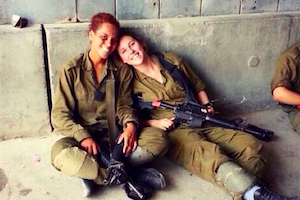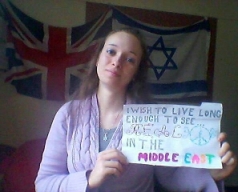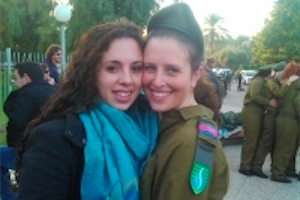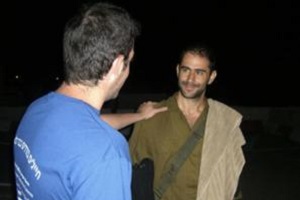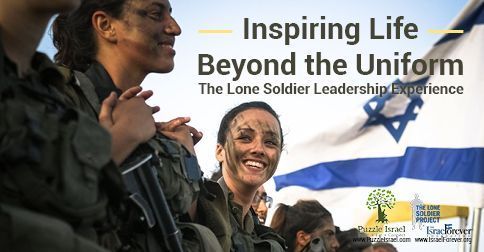Return of the 'Lucky Lone Soldier': Part 2
By Joe Livarchik
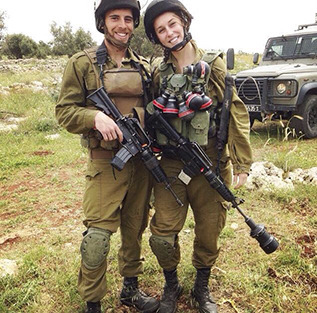
You're sitting on your couch, tuned into the video game where your player is guarding the gate at the Israeli-Gaza border.
For the umpteenth time this day, the 'code red' alarm goes off, telling you to duck and cover. You press 'B' on your controller and suddenly the speakers start to shake and the whistle of the rocket blasting through the gate screams throughout your living room.
Phew. Your player survives the attack. The video game gets quiet again.
Meanwhile on that same front, some 7,000 miles away in Israel, a real soldier is preparing to dodge yet another rocket. But first, Kayla Mogil dusts off her uniform and picks up a piece of cooled shrapnel from the rocket that almost hit her. She's going to give it to her younger brother Noah, who is back home, safe on Mercer Island.
Flashback to June 2013, where Mogil is performing her last routine as a graduating senior on the Mercer Island High School drill team. A year later, and only four months into her combat training for the Israel Defense Forces (IDF), Mogil is stationed right on the border where Israeli troops were entering into Gaza.
For the first time Mogil feared for her own life.
People think the role of a voluntary lone soldier (which can be anyone without parents in Israel) is to fulfill their service and return to their home country. But in a war it doesn't matter if you are Israeli or Palestinian or American. This is one reality that Mogil learned fairly quick. After hearing of five lone soldiers—two from America—who died in the war, everything was put into perspective for her.
Fortunately, Mogil did survive these events and her two years of service in the IDF. After Gaza, Mogil was stationed back where she was meant to be in the West Bank. As part of the search and rescue combat unit, Mogil was tasked with a wide variety of missions around her station in Ramallah. Some involved spending days on guard duty in a pill box, guarding Jewish settlements, breaking up riots with tear gas, and making arrests.
"The times where I was most in danger of my life were during the war [in Gaza]," Mogil says, "but when I was stationed on the West Bank there were times where I might get stabbed or I would get a boulder slingshotted at me or get shot. I felt like I was in danger of getting injured, but I never felt danger for my actual life. It was more like, something might happen, but I won’t die."
See the full article HERE

